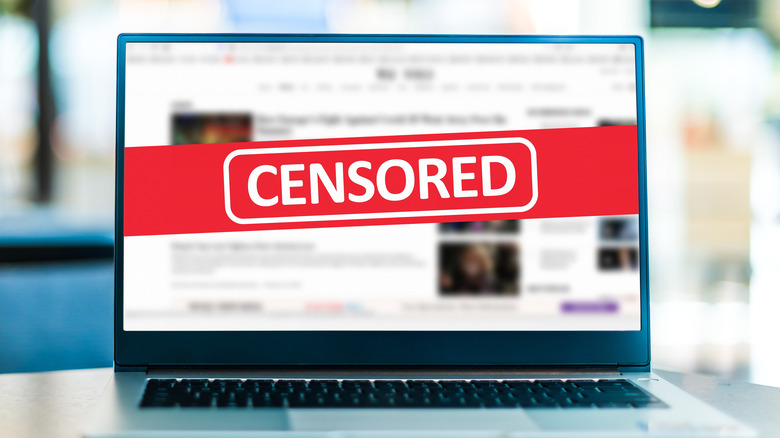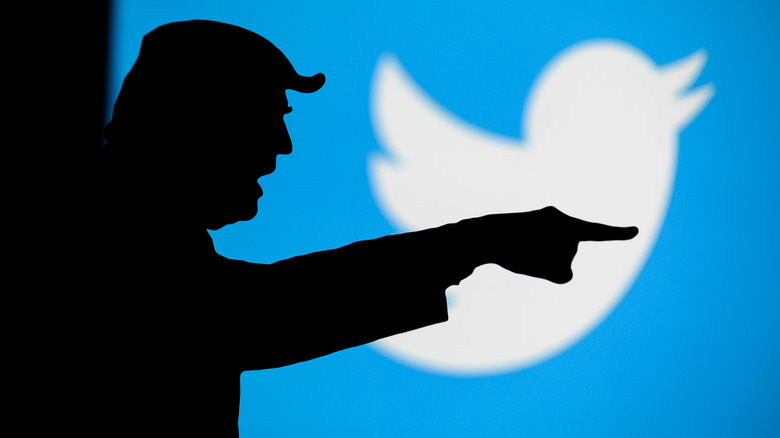The Truth About Social Media Censorship
Censorship is a tricky subject when it comes to social media. While people have a right to free expression online, according to the Freedom Forum Institute, there are still limitations to what one can say on a public platform. The First Amendment protects an individual from government censorship, but, when it comes to social media platforms, companies like Facebook and Twitter are private companies and have the right to censor any content they deem inappropriate.
So how do you know if your social media content will be censored? The answer to that is pretty basic, regardless of the platform: Hate speech, obscenity, harassment, and misinformation are often censored to protect other users and to prevent lies from spreading (via Freedom Forum Institute).
Of course, every platform has its own specific rules about what's appropriate or not, and, even within those rules, there are some gray areas. This often leaves people claiming that they're being unfairly censored, as has been the case with conservatives in recent years (per USA Today).
However, U.S. citizens using social media should count themselves lucky: Some countries ban social media platforms altogether, while others take a heavy hand in censoring content and restrict a few apps rather than all.
While the system of social media censorship is far from perfect, there are some cases where it's clear that censorship is necessary.
Facebook and Twitter have approached censorship differently
On Jan. 8, 2021, Twitter permanently suspended former President Donald Trump's Twitter account. In the past, he had spread misinformation on several topics, and the straw that broke the camel's back was when his claims of voter fraud in the 2020 election incited his supporters to storm the Capitol on Jan. 6, 2021 (via The California Aggie). Twitter issued a statement explaining that Trump's posts "glorified violence" and that "the tweets violated the company's policies," per Nicki Swift.
Twitter banning Trump is just one example of why it's so important to have social media censorship. Mark Zuckerberg and Meta, formerly known as Facebook, have come under the gun for allowing "misinformation, divisiveness, and other potential sources of real-world harm" on its platform, despite employees' stated concerns, per Business Insider. One huge topic of concern was how Russian hackers used the social media platform to disrupt the 2016 presidential election and turn it in favor of Trump.
Clearly, even though censorship can feel stifling at times, social media has become such a powerful tool that it needs to be properly managed, keeping it out of the hands of those who would use it for the wrong reasons.

